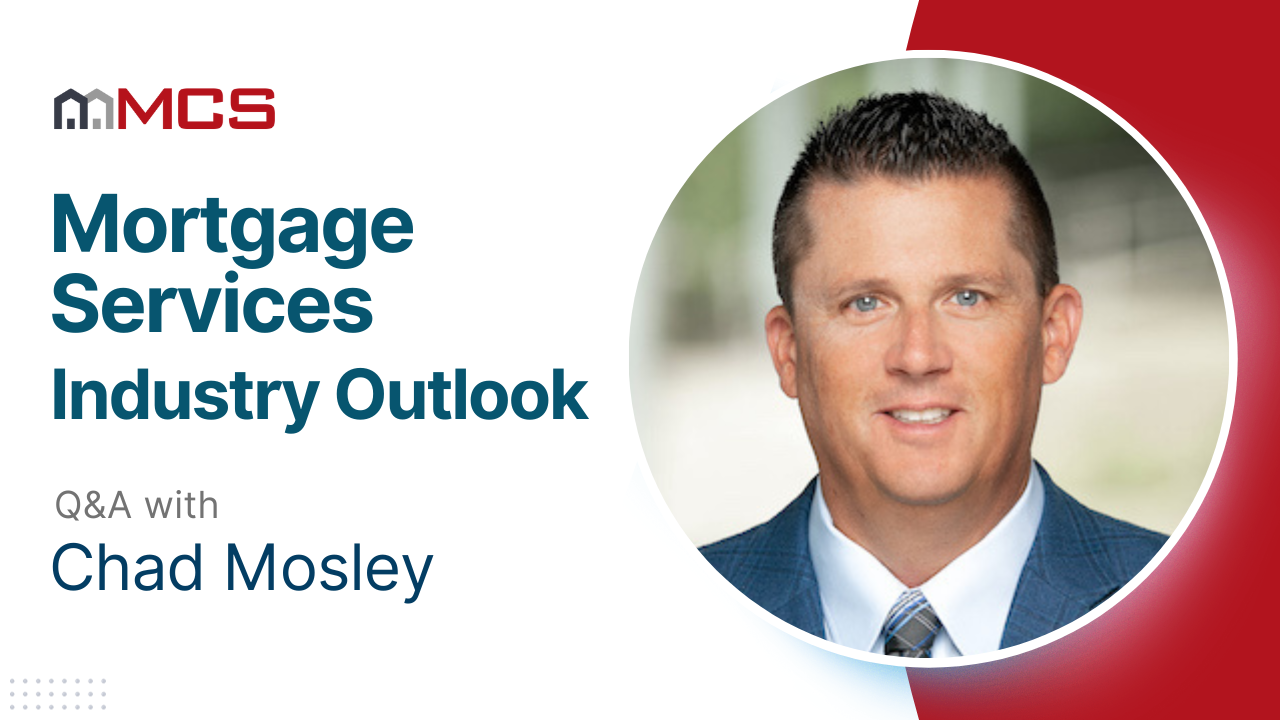Industry Buzz: 5 Key Mortgage Services Industry Insights

As Q2 2024 starts, mortgage servicing professionals have used many forums to discuss what’s in store for the industry throughout the year. Events like the MBA Servicing Conference and industry-sponsored webinars have hosted industry professionals to share their perspectives. MCS’s team of mortgage experts share five key items that continue to resonate across the industry.
1. Continued consolidation
On the heels of the explosive origination volume of the last few years and high levels of home equity, further consolidation within the overall mortgage sector seems likely, both from the vendor as well as the client side.
“Given current flat-to-low volumes, people continue to look at partner performance and where they can provide support. This includes conversations about future plans, whether it’s renovations to upgrade certain properties in certain areas or creatively looking at dispositions to get them off their balance sheets more quickly,” says Jason Myers, Vice President of Business Development at MCS.
2. Investing in property improvements
On the whole, there’s an increased appetite to step outside of traditional disposition routes where it makes sense for each individual asset.
“We’ve seen our clients looking at their bank-owned population for other opportunities, taking advantage of the strong housing market and trying to make investments on a property-by-property basis to increase the sales price,” says MCS Chief Relationship Officer Tracy Hager. “However, it definitely depends on who is holding the MSR (Mortgage Servicing Rights) at the end of the day. If it's a bank, liquidity is an issue with Basel III expectations, so there is not as much opportunity to expend loose funds. For assets insured by privately held investors, they’re looking at the market differently.”
3. Handling new loss-mitigation waterfall
Another overwhelming theme across the industry is the new proposed loss-mitigation waterfall. The Federal Housing Administration’s recently published Payment Supplement Mortgagee Letter establishes its new loss-mitigation home-retention solution designed to help additional borrowers avoid foreclosure and retain their homes when other FHA options can’t generate a sustainable monthly mortgage payment reduction.
The Payment Supplement enables servicers to bring the borrower’s mortgage current and temporarily reduce the principal portion of their monthly mortgage payment for a term of three years without modifying the mortgage and is repaid only when the borrower sells or refinances the home or the mortgage is otherwise extinguished.
“While HUD is rightfully being applauded for this effort to keep people in their homes, at the same time, the new proposed waterfall could be challenging for servicers to implement and navigate,” Hager says. Mortgage servicers can begin implementing the Payment Supplement into their operations beginning May 1, 2024, and are required to implement the solution by Jan. 1, 2025.
4. Climate risk
Climate risk continues to be a growing concern across the industry, particularly in the insurance space with many standard-line carriers refusing to insure properties based on flooding and other natural disasters in high-risk geographies.
“We're seeing this in California, Florida and some coastal cities, where insurance companies are pulling out of any type of coverage,” Hager says. “Traditional insurance premiums continue to rise and lender-placed insurance is also expensive. This will result in a significant increase in escrow payments for borrowers in areas that are continually impacted by natural disasters. The cost of escrow could end up pushing borrowers into default just by trying to find a way to affordably insure their asset.”
5. Property preservation pricing
A continuing topic of discussion is property preservation pricing allowables. Fannie Mae and HUD acknowledge that while they did address inspection pricing across the industry in 2023, they recognize that they have not updated preservation line-item allowables for many years.
“They understand that pricing is a challenge and that they're going to be working on it. The VA (Department of Veterans Affairs) also acknowledged that they need to examine inspection pricing, but they have had competing priorities,” Hager says. “We appreciate their efforts and consideration so that we can provide our vendors with additional support.”
How MCS stands out in the mortgage services industry
With issues like these facing the industry, it’s important to have a strong property preservation provider to partner with you and your team.
“MCS’s self-performing capabilities, extensive service partner network and forward-thinking business strategies enable us to leverage the systems, tools and people needed to help you secure and maximize your investments,” Myers says. “And we’re continuing to expand into new markets to ensure we’re there when and where you need us, including going beyond traditional default and into supporting originations with hybrid appraisals.”
To learn more about MCS and how we can partner with you to protect and maximize your property investments no matter what the future holds, contact Jason Myers today.


